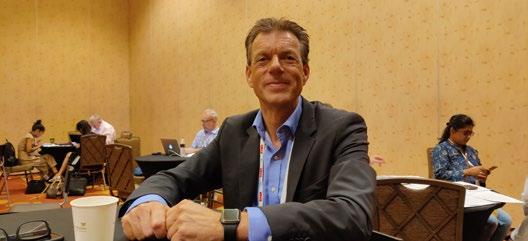
1 minute read
EXCEPTIONAL INSIGHTS ON DIGITAL CITIES
Bob Mankowski, VP Digital Cities; Benoit Fredericque, Director, Product Management-Reality Modeling & Ton De Vries, Senior Director, Business Development, Digital Cities

Advertisement
Please define Digital Cities in simple terms.
A digital twin is a digital representation of a physical asset, process or system that acts as a bridge between the digital world and the physical world. It also includes the engineering technology that’s necessary to model and understand the performance of the asset or the process or the systems. So, it is basically having a digital representation of a physical asset, like a process plant. A geometric and visually accurate representation of the plant. And then combining with that physical geometric and visual representation, the engineering technology like analysis or simulation applications, information technology so things about work orders and inspection histories, and financial data with operational technology like IOT sensor data, temperature data, occupancy data for rooms, vibration, electrical voltage.
A digital twin is then a virtual representation of the plant, that can provide visibility on the current status of the plant, and then can also be used to simulate, changes to the plant. The physical asset could be a plant, a road, a rail system, a water system or it could be a process like a construction process.
In simple terms, the Digital City is basically a digital replica of the physical assets and infrastructure in the city. It is digital replica that represents the real-life situation in that city.
Is there a difference between digital cities and smart cities?
Yes definitely. For Bentley, the difference is that a Digital City is kind of a prerequisite in order to get to a smart city. Around the world many cities have different views and focuses when it comes to establishing a smart city program in the city, it’s simply because the needs and the requirements in Singapore are different than they are in Rio de Janeiro or in Mumbai or in Munich. But all of these use cases or many of these use cases will benefit from having a digital twin of a city available because the city is conceived basically out of three major things.





